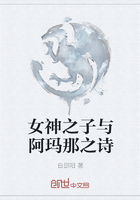The donor, whoever he was, little knew the pain he was inflicting on this distressed but proud family, or the hard battle that ensued between their necessities and their delicacy.The ten gold pieces were a perpetual temptation: a daily conflict.The words that accompanied the donation offered a bait.Their pride and dignity declined it; but these bright bits of gold cost them many a sharp pang.You must know that Josephine and Rose had worn out their mourning by this time; and were obliged to have recourse to gayer materials that lay in their great wardrobes, and were older, but less worn.A few of these gold pieces would have enabled the poor girls to be neat, and yet to mourn their father openly.And it went through and through those tender, ****** hearts, to think that they must be disunited, even in so small a thing as dress; that while their mother remained in her weeds, they must seem no longer to share her woe.
The baroness knew their feeling, and felt its piety, and yet could not bow her dignity to say, "Take five of these bits of gold, and let us all look what we are--one." Yet in this, as in everything else, they supported each other.They resisted, they struggled, and with a wrench they conquered day by day.At last, by general consent, Josephine locked up the tempter, and they looked at it no more.But the little bit of paper met a kinder fate.Rose made a little frame for it, and it was kept in a drawer, in the salon: and often looked at and blessed.Just when they despaired of human friendship, this paper with the sacred word "friend" written on it, had fallen all in a moment on their aching hearts.
They could not tell whence it came, this blessed word.
But men dispute whence comes the dew?
Then let us go with the poets, who say it comes from heaven.
And even so that sweet word, friend, dropped like the dew from heaven on these afflicted ones.
So they locked the potent gold away from themselves, and took the kind slip of paper to their hearts.
The others left off guessing: Aubertin had it all his own way: he upheld Perrin as their silent benefactor, and bade them all observe that the worthy notary had never visited the chateau openly since the day the purse was left there."Guilty conscience," said Aubertin dryly.
One day in his walks he met a gaunt figure ambling on a fat pony: he stopped him, and, holding up his finger, said abruptly, "We have found you out, Maitre Perrin."The notary changed color.
"Oh, never be ashamed," said Aubertin; "a good action done slyly is none the less a good action."The notary wore a puzzled air.
Aubertin admired his histrionic powers in calling up this look.
"Come, come, don't overdo it," said he."Well, well; they cannot profit by your liberality; but you will be rewarded in a better world, take my word for that."The notary muttered indistinctly.He was a man of moderate desires;would have been quite content if there had been no other world in perspective.He had studied this one, and made it pay: did not desire a better; sometimes feared a worse.
"Ah!" said Aubertin, "I see how it is; we do not like to hear ourselves praised, do we? When shall we see you at the chateau?""I propose to call on the baroness the moment I have good news to bring," replied Perrin; and to avoid any more compliments spurred the dun pony suddenly; and he waddled away.
Now this Perrin was at that moment on the way to dine with a character who plays a considerable part in the tale--Commandant Raynal.Perrin had made himself useful to the commandant, and had become his legal adviser.And, this very day after dinner, the commandant having done a good day's work permitted himself a little sentiment over the bottle, and to a man he thought his friend.He let out that he had a heap of money he did not know what to do with, and almost hated it now his mother was gone and could not share it.
The man of law consoled him with oleaginous phrases: told him he very much underrated the power of money.His hoard, directed by a judicious adviser, would make him a landed proprietor, and the husband of some young lady, all beauty, virtue, and accomplishment, whose soothing influence would soon heal the sorrow caused by an excess of filial sentiment.
"Halt!" shouted Raynal: "say that again in half the words."Perrin was nettled, for he prided himself on his colloquial style.
"You can buy a fine estate and a chaste wife with the money,"snapped this smooth personage, substituting curt brutality for honeyed prolixity.
The soldier was struck by the propositions the moment they flew at him small and solid, like bullets.
"I've no time," said he, "to be running after women.But the estate I'll certainly have, because you can get that for me without my troubling my head.""Is it a commission, then?" asked the other sharply.
"Of course.Do you think I speak for the sake of talking?"And so Perrin received formal instructions to look out for a landed estate; and he was to receive a handsome commission as agent.
Now to settle this affair, and pocket a handsome percentage for himself, he had only to say "Beaurepaire."Well, he didn't.Never mentioned the place; nor the fact that it was for sale.
Such are all our agents, when rival speculators.Mind that.Still it is a terrible thing to be so completely in the power of any man of the world, as from this hour Beaurepaire was in the power of Perrin the notary.














